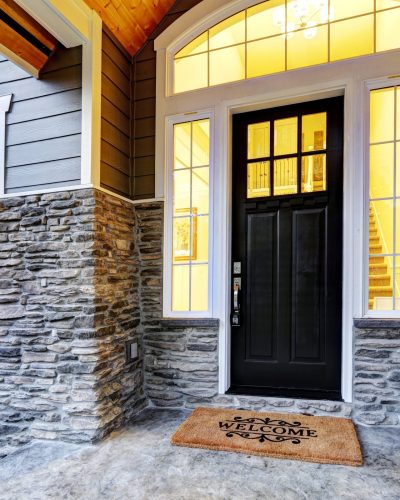Purchasing a home is a major investment, and as with any investment, it is important to be educated before you dive in. Once you have a basic understanding of what home ownership entails, you must carefully consider whether you are truly ready to buy.
When determining whether you are ready to buy your first house, there are five key factors to consider.
Am I Ready to Buy a House?
1. The Current State of Your Finances
The current state of your finances is perhaps the single most important factor to consider when determining whether you are ready to delve into home ownership. When examining your current financial state, you must answer two questions:
- Do I Have Cash Set Aside for a Down Payment? Ideally, you need to be able to put down at least 20% in order to qualify for the high loan limits of our area. You will also need several months worth of reserves and money set aside for repairs, moving, and other incidentals.
- Can I Afford the Cost of a Home? In addition to your mortgage payment you will need to pay property taxes, insurance, HOA fees if appliacable, as well as enough money for your living expenses and budget for your home’s maintenance. Over time you will need to expect to repair or replace fences, roofs, gutters, water heaters, appliances, as well as update your home, so budget wisely.
2. The Stability of Your Financial Future
This is another important factor when determining whether you should buy a house now or wait until the future. If you have recently changed jobs, if you are thinking about changing jobs, or if you are expecting any major changes to your income, it is not a good idea to buy a house until you are on more solid footing. Banks and mortgage lenders typically require you to have been with your employer for at least a year or two before they will consider you for a loan.
Furthermore, you need to have a plan to pay your mortgage in the event that something does go wrong in the future, such as a layoff or a medical problem. Typically, this means you should have a reserves – at least a few months’ worth of living expenses – set aside before you buy a home.
3. Your Credit Score
The state of your credit is just as important as the state of your finances when it comes to deciding whether you are ready to buy a home. Your credit score determines whether a mortgage lender will give you a loan at all, as well as the rate. A low credit score can result in a significantly higher interest rate, which means that you will pay thousands (or hundreds of thousands) more over the life of the loan.
Typically, you need a credit score above 720 in order to get the most advantageous rates. If your score is lower, consider waiting a while to buy a house as you try to improve it. You can do this by:
- Paying down debt
- Having inaccuracies removed from your credit report
- Making payments on time every month
- Avoiding opening new types of credit or applying for new loans
Over time, with responsible borrowing behavior, old negatives on your report will have less of an impact, your score will go up, and you will be ready to purchase a home at a better rate.
4. Your Commitment to Staying in One Place
Buying a house entails a large initial expense. First, you must pay the closing costs associated with your mortgage, which can total several thousand dollars. Once you are in the home, most of the initial mortgage payments go toward paying interest on the loan, rather than paying down the loan balance. Keep in mind that selling your home in the future may also be expensive, as you typically must pay commission to a real estate agent.
With all of these costs, it is very difficult – if not impossible – to make money on a home unless you plan to stay in it for a while. Until recently, many experts recommended that you plan to stay put for at least two years if you are going to buy a home. However, because of an uncertain real estate market and uncertain property values, this estimate has been revised to suggest that you refrain from buying unless you plan to stay put for at least five years. If you aren’t committed to staying in one place for that duration, now may not be a good time to buy.
5. Your Commitment to Home Ownership
Being a homeowner is different than being a renter. You need to take care of all of your own home repairs and maintenance, rather than counting on someone else to do it. You may have more yard work, as well as additional responsibilities that renters don’t have to worry about. While some people don’t mind such chores, others don’t want the hassle. Consider whether you are ready to take on these added responsibilities of home ownership before you make your decision.





